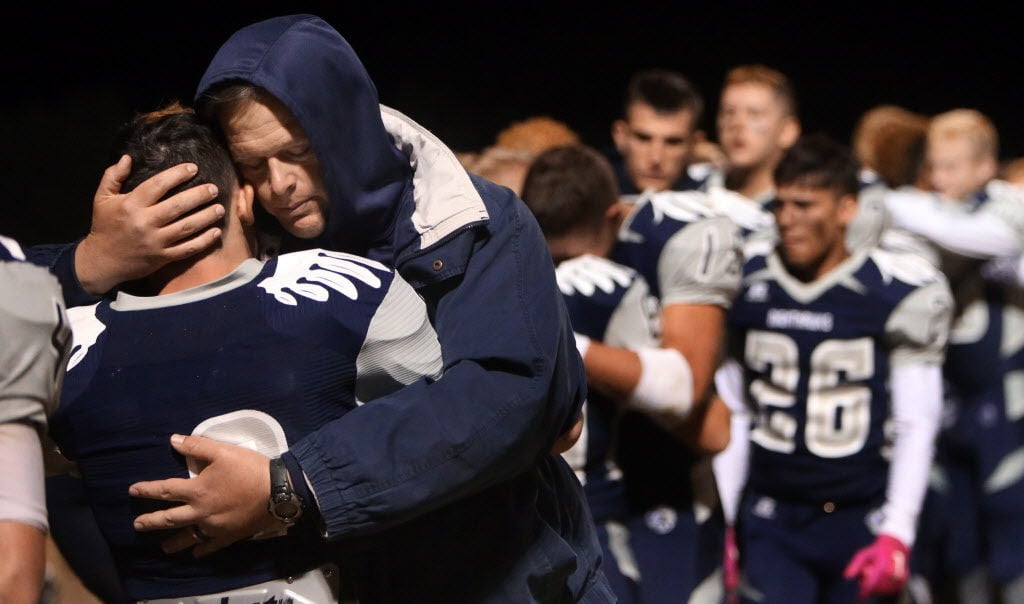Steve Holden sat next to me in my high school social studies and typing classes. Other than that, I rarely saw him and knew little about him. He was, at most, 5 feet 5 inches and 115 pounds. Didn’t play sports. Didn’t chase girls. Didn’t hang out with any group of kids.
I grew to enjoy Steve’s classroom company because he had a great sense of humor, and he was immensely likable. I still kick myself for not getting to know him better.
Late in my senior year, Steve missed class for a few days, and finally for a week or so. I asked around: What happened to Steve Holden?
Nobody knew.
Shortly thereafter, our social studies/homeroom teacher Rod Tueller stood in front of the class, and I knew immediately something was wrong. Coach Tueller’s eyes were swollen and red.
It seemed impossible that one of the most imposing figures at my high school — the head basketball and baseball coach — was on the verge of crying.
Coach Tueller’s voice cracked several times as he told us Steve Holden had died a few days earlier. He composed himself, told us to read a chapter in a history book and walked into his office. By then, every person in the room was wiping away tears.
At baseball practice that day, I asked Coach Tueller what happened to Steve.
He died of a congenital heart defect, at home, his single mom unable to provide proper medical care.
“The teachers pooled their money so that Steve’s mom could pay the funeral home,” Tueller told me.
I didn’t think much about a school teacher’s salary in those days, but I knew Rod Tueller had six young kids and couldn’t have been more than 30 or 35 years old and was surely on the low-end of the payscale. I don’t know how many teachers chipped in, or how much it cost, but the teachers did what they could to make sure Steve Holden got a proper burial.
What I did know was that Coach Tueller was a difference-maker.
Most of us were fortunate to have a Rod Tueller in our lives. When hundreds of Tucson teachers and coaches staged a #RedForEd walkout the other day, I worried about how many future Rod Tuellers have chosen not to become school teachers because of the stigma of low wages.
Ironwood Ridge High School teacher/football coach Matt Johnso, who coached the Nighthawks to the 2012 state championship, was strongly influenced by the Rod Tueller of his days at Amphitheater High School, football coach Vern Friedli.
Friedli, who coached a then state-record 331 victories, was into the shaping-boys-into-men business for almost 50 years; Johnson has been Friedli’s most high-profile protégé. If you’ve ever met Matt Johnson, or had a son — or the son of a friend — play for him, you know what I mean.
Difference-maker.
A few days before the #RedForEd walkout, Johnson took a photograph of his contract and posted it on Facebook. He is paid $43,900 a year, with a $3,800 coaching stipend. He has a masters degree and has taught/coached in Tucson for 19 years.
Is that income commensurate with Johnson’s responsibilities and the impact he has on young people’s lives?
Not even close.
Here’s some context: the Ironwood Ridge staff directory lists 82 teachers. If you gave them an even split of UA basketball coach Sean Miller’s estimated annual compensation of $4 million, that would be about $50,000 per teacher. It would be a raise for most of the teachers.
Miller coaches 12 ballplayers. A teacher and coach like Matt Johnson probably touches the lives of 200 young people every year.
Yes, Miller is in the entertainment business. He gets paid what the market bears. My point is this: When did this business about paying teachers and coaches get so warped? Over the last 40 years, the education system in this country started paying coaches too much and teachers too little.
It just doesn’t seem right.
Johnson didn’t whine about his teacher’s income. He was upfront about working in his chosen profession and about how much he enjoys the process, being a positive influence in the lives of his young men.
He knows what being a high school coach means. You’re responsible for everything, no matter how many zeros are in your paycheck.
During my senior year in high school, Coach Tueller was pitching batting practice one afternoon. Our second baseman, Terry Taylor, was standing in the batter’s box, maybe 25 feet away, preparing to be the next hitter.
In a moment of horror, one of Tueller’s pitches was sliced foul, smacking hard into Terry Taylor’s face. I still remember the sound of impact. Taylor collapsed, out cold. There was blood everywhere.
I feared he was dead.
Tueller, the only coach on the team, sprinted to Taylor’s side. He cradled his head in his hands, picked him up and carried him to the dugout, shouting orders to the rest of us. Call an ambulance. Run to the office and get bandages and towels. Tell the principal to call his dad.
Coach Tueller took charge; nobody panicked.
By season’s end, Terry Taylor was back on his feet. He even wanted to play again.
If you wanted a role model for your sons, Coach Tueller was that man.
Over the next 20 years, Tueller moved on to become the head basketball coach at Utah State, and later the school’s athletic director. He coached the Aggies to three NCAA Tournaments, led my high school to the state championship game and remains a man of great influence in my hometown.
I have no idea what Logan High School paid him that year, but like so many teachers in Tucson today, he earned every cent and more.





